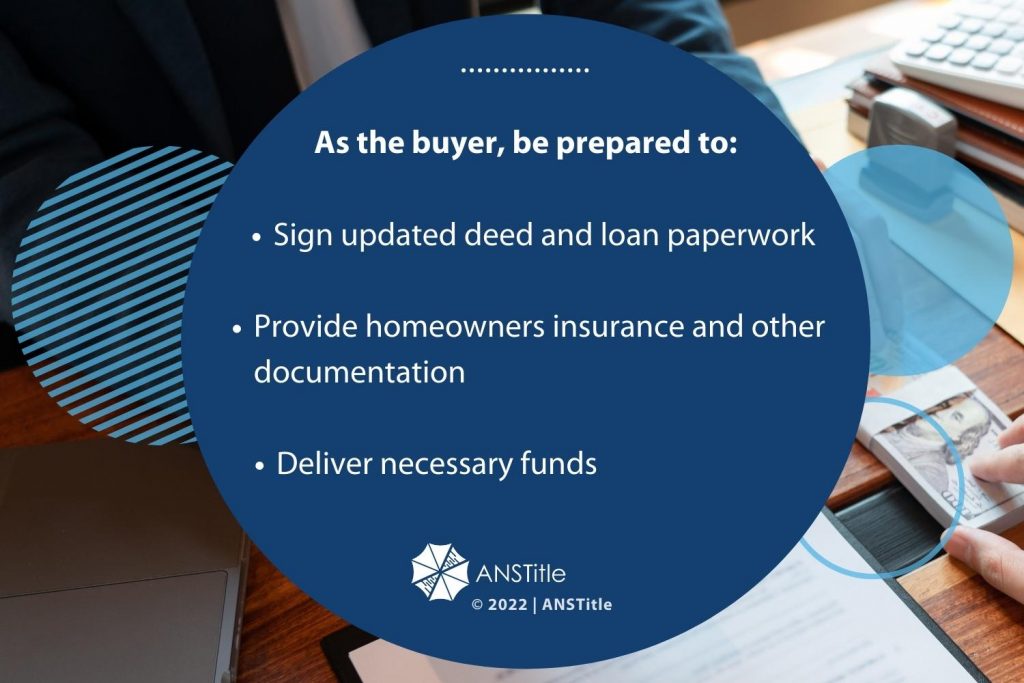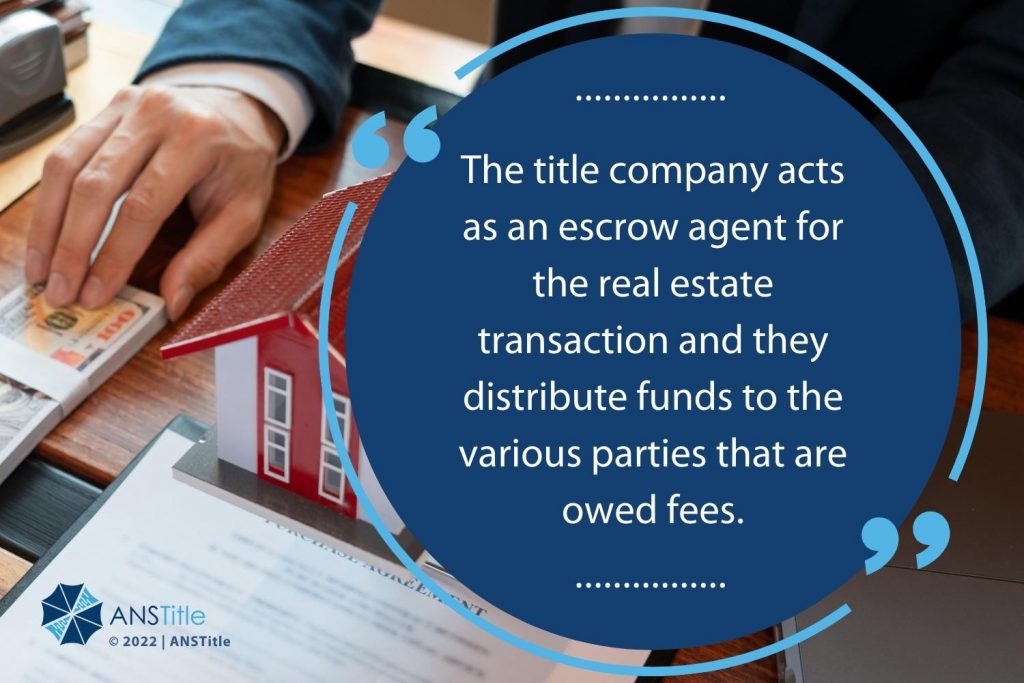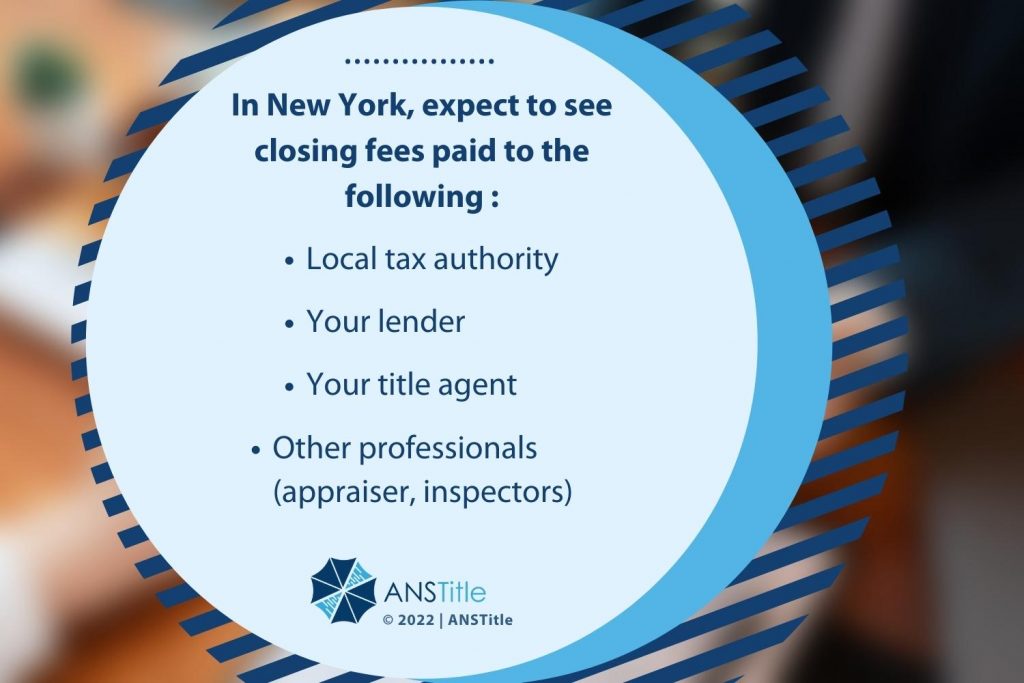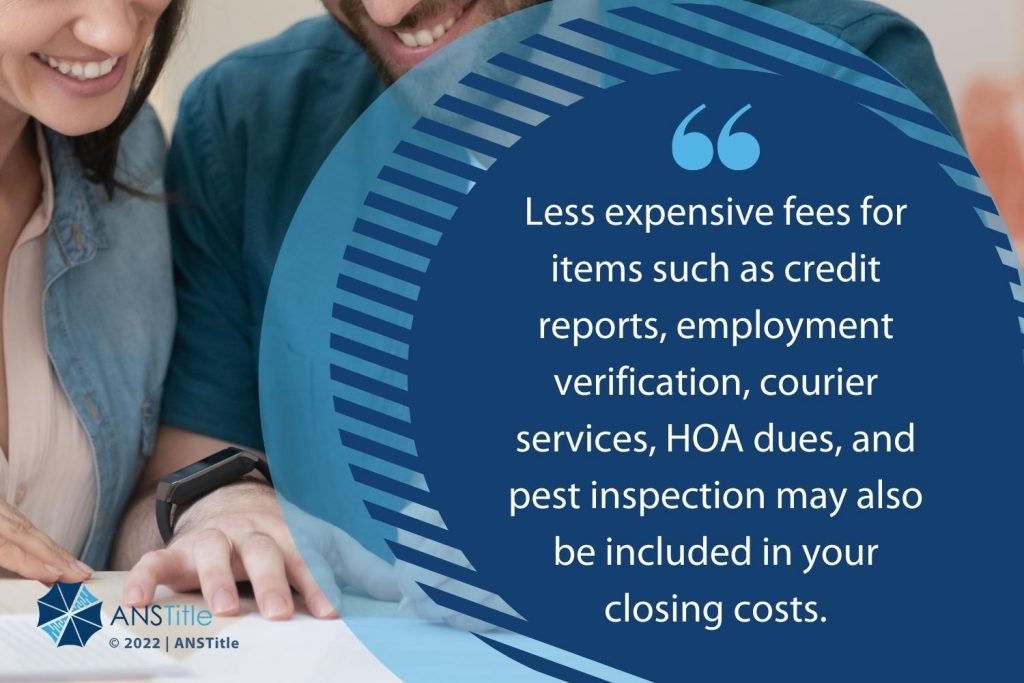There is a widespread misconception amongst first-time homebuyers that the several thousand dollars in closing costs they will be paying all go to the title insurance company handling their closing. While some of the fees do cover your title insurance expenses, most of the money gets collected by various other parties such as the local tax authority and your mortgage company.
To further clarify this misunderstanding about closing cost funds, ANSTitle briefly reviews how closings are conducted and what role your title insurance company plays in the process. We’ll also point out who gets to keep the money paid for some common closing cost items in the state of New York.
How Closings Work
The closing day is the culmination point of every real estate transaction. That’s when the ownership of the property is officially transferred from one party to the other. As the buyer at your closing, be prepared to review and sign your updated deed and loan paperwork, provide homeowners insurance and any other outstanding documentation, and deliver the closing cost and down payment funds. Â

All of your closing costs will be outlined in a document called closing disclosure (CD) or HUD-1 settlement statement. Your title agent will be able to provide you with your closing disclosure a couple of days in advance, allowing you time to review the individual list items and fees. They will also be able to give you the exact amount you need to wire or bring in as a cashier’s check to your closing.
Closing Costs and the Role of Your Title Insurance Company
While sometimes held at an attorney’s or a lender’s office, closings are typically conducted at the office of your title insurance company. Your title agent will schedule the time and day of your closing and ensure all parties are able to attend.
In addition to hosting your closing, your title agent will also be responsible for collecting your closing costs funds. As we revealed at the beginning of the article, however, the title insurance company does not get to keep all the closing costs. They act as an escrow agent for the real estate transaction, and after you transfer the closing funds to them, they will distribute the money to the various parties that are owed fees. Â

Let’s take a more detailed look at what type of fees get included in closing costs and who gets to collect the money for the various line items on your closing disclosure.
Closing Costs in New York
The exact closing fees will vary from one real estate transaction to another as each home buying scenario is unique. There are, however, several common line items you can expect to see in a typical closing disclosure for an existing home purchase with a mortgage in the state of New York.
Closing Fees Paid to the Local Tax Authority
- Recording Fees – the local government charges fees of a few hundred dollars to add the purchase and sale of the property to its records.
- New York Mortgage Tax – if you are financing your property, you will be responsible for paying mortgage recording tax. The exact tax is calculated as a percentage of the total mortgage amount.
- New York Mansion Tax – named aptly, this tax applies to residential property transactions of $1 million and more. Starting at 1% for the lowest tier, the Mansion Tax goes all the way up to 3.9% of the home purchase price.
Closing Fees Paid to Your Lender
- Mortgage Application and Processing Fees – these are the fees charged by your lender for the cost of taking your application, gathering documentation, etc.
- Bank Loan Origination Fee – yet another fee that lenders charge for processing your loan application. It will cost you another half to one percent of your loan amount.
- Bank Attorney Fee – the lender providing your mortgage will most likely have a legal representative involved in the transaction. You can expect to be paying for their fee.
- Points and PMI – if you’re purchasing points to reduce your loan interest rate or your lender requires you to carry private mortgage insurance, you will be paying for these at your closing as well.
Closing Fees Paid to Your Title Agent
- Title Search – this fee covers the cost of the public record search that the title insurance company will conduct in order to uncover any unknown ownership claims, liens, or other issues with the property.
- Title Insurance – this indemnity insurance policy is meant to protect you and your lender from financial losses caused by claims against the property that was unknown at the time of purchase. Depending on the value of your property, title insurance in New York can cost you from a few hundred to several thousand dollars.
- Closing Fee – your title insurance company charges a fee for acting as a closing agent for your real estate transaction.
Closing Fees Paid to Other Professionals
- Property Appraisal – typically a requirement for financed home purchases, the property appraisal will cost you a few hundred dollars. In exchange, you will have the assurance that you are not overpaying for the property.
- Buyer’s Attorney – while hiring an attorney to represent you in your home buying transaction is not required, it is highly recommended. Having decent representation in most cases will add another few thousand dollars to your closing cost bill.
Keep in mind that this list is not exhaustive as we focused only on the higher-cost items you may need to pay for at your closing. Other less expensive fees for items such as credit reports, employment verification, courier services, HOA dues, and pest inspection may also be included in your closing costs.
If you would like to learn more about what happens to the money you pay at your closing or you are simply looking for a title insurance quote in NY, contact one of our agents today. ANSTitle is a New York title insurance company with over 50 years of experience in transactional real estate and we will be happy to handle your closing in New York, New Jersey, or any other state.


